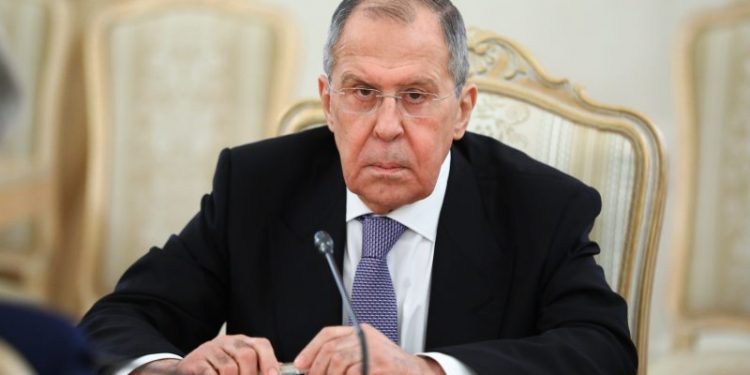Moscow: Russian Foreign Minister Sergey Lavrov said Friday that Moscow is ready for talks at ‘any moment’ with Ukraine. However, talks will happen once the Ukrainian military respond positively to President Vladimir Putin’s call, end their resistance and lay down their arms. Sergey Lavrov made the remarks following talks with Deputy Foreign Minister of the Donetsk People’s Republic (DPR) Sergey Peresada and Foreign Minister of the Lugansk People’s Republic (LPR) Vladislav Deinego, the state-run ‘TASS’ news agency reported.
Putin signed treaties with leaders of DPR and LPR February 21, recognising the two regions of Ukraine as independent.
“We are ready to hold talks at any moment, once the Ukrainian armed forces respond to our president’s call, end their resistance and lay down their arms. No one plans to attack and oppress them, let them return to their families. Let us give the Ukrainian people a chance to decide their future,” Lavrov was quoted as saying by ‘TASS’ news agency.
Also read: Russia claims it controls airport near Ukrainian capital Kyiv
Putin launched Thursday a multi-pronged all-out attack on Ukraine, casting aside international condemnation and sanctions. Putin announced in a televised address Thursday morning that in response to a request by the head of the Donbas republic, he had made a decision to carry out a special military operation to protect people ‘who have been suffering from abuse and genocide by the Kyiv regime for eight years’.
Putin said the Russian military operation aims to ensure a ‘demilitarisation’ of Ukraine. Putin also urged Ukrainian servicemen to ‘immediately put down arms and go home’.
Stressing that Russia had always called for negotiations, Lavrov said, “There is no shortage of talks but when talks are replaced with blatant sabotage, while Russia is accused of allegedly failing to implement the Minsk accords, it’s effrontery, which is what some of our Western colleagues are famous for, but this time, it just went beyond all limits because it was accompanied by a continuous deterioration of the Russian-speaking population’s situation in Ukraine.”






































